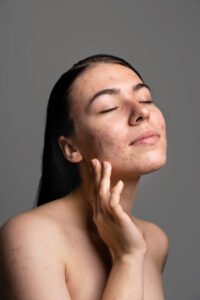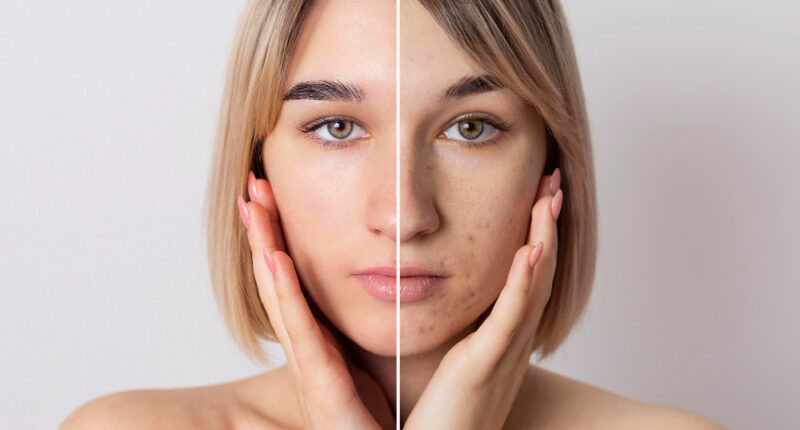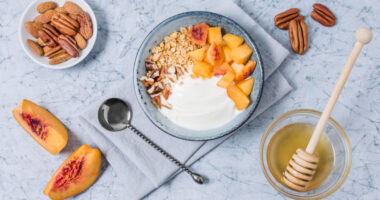Pimples are a common and often frustrating skin issue that can be influenced by various factors, including diet. While skincare routines play a significant role in maintaining clear skin, the foods you eat can also impact the frequency and severity of acne breakouts. Here are ten foods to avoid if you’re looking to keep pimples at bay.
- Sugary Foods and Beverages
Sugar is a major culprit when it comes to acne. High sugar intake can lead to increased insulin levels, which in turn can cause more oil production and clog pores. Avoiding sugary snacks, sodas, and desserts can help reduce the likelihood of pimples.
- Dairy Products
Dairy, particularly milk, has been linked to acne in several studies. The hormones present in milk can trigger oil production and inflammation. Try reducing your intake of milk, cheese, and other dairy products to see if your skin improves.
- Fast Food
Fast food is often high in unhealthy fats, refined carbohydrates, and sugars, all of which can contribute to acne. Burgers, fries, and other fast-food items can cause a spike in blood sugar levels, leading to increased oil production and breakouts.
- Chocolate
Chocolate, especially milk chocolate, can exacerbate acne due to its high sugar content and dairy. Opt for dark chocolate with a higher cocoa content and lower sugar if you crave a sweet treat.
- Refined Grains
Refined grains like white bread, pasta, and white rice have a high glycemic index, which can cause a rapid increase in blood sugar and insulin levels. This spike can lead to inflammation and pimples. Choose whole grains instead for better skin health.

- Greasy Foods
Greasy foods, such as fried chicken, potato chips, and other deep-fried items, can contribute to oily skin and clogged pores. Consuming these foods in moderation and opting for healthier cooking methods can help keep your skin clearer.
- Processed Foods
Processed foods are often packed with preservatives, artificial flavours, and unhealthy fats that can negatively affect your skin. Foods like processed meats, ready-to-eat meals, and packaged snacks can lead to inflammation and increased acne breakouts.
- Spicy Foods
While not directly causing pimples, spicy foods can trigger skin inflammation and exacerbate existing acne. If you notice your skin flares up after eating spicy dishes, it might be worth cutting back to see if your skin improves.
- Whey Protein
Whey protein, commonly used in protein shakes and bars, has been linked to acne due to its influence on insulin levels and its ability to increase oil production. If you’re prone to pimples, consider switching to a plant-based protein powder.
- Alcohol
Alcohol can dehydrate your skin, leading to increased oil production as your skin tries to compensate for the lack of moisture. Additionally, alcoholic beverages often contain high amounts of sugar and can lead to inflammation. Limiting your alcohol intake can help maintain clearer skin.
Conclusion
Achieving clear, acne-free skin involves more than just topical treatments; it requires a holistic approach that includes a healthy diet. By avoiding these ten foods, you can help reduce the frequency and severity of pimples. Instead, focus on eating a balanced diet rich in fruits, vegetables, lean proteins, and whole grains, which can promote overall skin health.
Remember, everyone’s skin is different, and what works for one person might not work for another. It’s essential to pay attention to how your skin reacts to different foods and adjust your diet accordingly. If you continue to struggle with acne, consider consulting a dermatologist for personalized advice and treatment options. Your skin is a reflection of your overall health, so taking care of your body from the inside out is key to maintaining a clear and radiant complexion.









